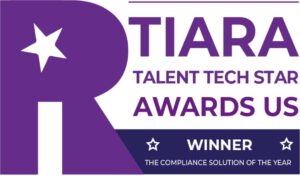The HR Competencies are crucial to master as a human resources professional. Your knowledge, abilities, and behavior are vital for your organization’s success.
Consequently, it’s important that you fully understand the specific competency models that define effective performance in your job. The purpose of this guide is to explain the primary actions you need to exhibit for maximum professional success.
What Are HR Competencies?
HR competencies represent a collective definition of the requirements for effective performance in your work. Each competency is a cluster of related knowledge, skills, and abilities (KSAs) that support the behaviors you need to exhibit to perform your job well.
While technical competencies determine what knowledge you apply to your job, behavioral competencies drive the specific ways you apply your technical expertise to your job.
Why Are Competencies Essential?
Knowing the HR behavioral competencies is necessary for those who want to pass the SHRM-CP and SHRM-SCP exams to gain their Society for Human Resource Management (SHRM) certification credential.
Additionally, research indicates that human resources professionals who understand and apply these behavioral competencies are more effective in their operational and strategic roles.
What Are the Behavioral Competencies in the SHRM Body of Competency and Knowledge (BoCK)?
The SHRM BoCK takes a two-pronged approach to understanding success in the field of human resources. Along with HR knowledge, which encompasses vital technical competencies, the model also recognizes eight behavioral competencies.
Leadership and Navigation
The Leadership and Navigation competency measures an HR professional’s ability to direct and contribute to company-wide initiatives.
For all professionals, this means demonstrating your alignment with organizational culture, fostering collaboration, buy-in, and consensus among stakeholders, and developing solutions to roadblocks preventing successful implementation.
This behavioral competency measures your ability to design and maintain mission, vision, and strategy, facilitate strategic organizational change, balance risk and opportunity, and ensure accountability when new plans are implemented within and across the organization.
Ethical Practice
The Ethical Practice competency is about maintaining integrity and your ability to ensure that core values are upheld in all organizational and business practices.
The key behaviors demonstrating keen understanding in this area include maintaining confidentiality of all sensitive information, immediately addressing unethical behavior or conflicts of interest, and maintaining consistency in values and integrity.
You are also responsible for ensuring the appropriate application of power and authority so that all stakeholder voices are heard.
As an advanced human resources professional, you must also empower ethical behavior in senior leadership and others, establish yourself as a credible and trustworthy individual, and develop policies and strategies that minimize organizational risk and hold people accountable.
Business Acumen
The Business Acumen competency relates to your ability to understand and contribute to the organization’s overall strategic plan. This means you must know how to develop and carry out practices aligned with the company’s current goals.
Key behaviors supporting this competency include understanding and assessing your organization’s position in the competitive business landscape, using organizational metrics to make important decisions, and learning how to use technology to solve issues.
More experienced HR professionals should be able to assess business initiative risk, understand how the labor market plays into organizational success, and develop HR strategies that drive business results.
Relationship Management
As an HR professional, one of your most important roles is managing interactions and helping others maintain productive interpersonal relationships. HR professionals must treat everyone with respect and dignity, deliver services and information in line with human resources strategy, provide good customer service, and promote everyone’s best interests.
More advanced professionals should look toward developing influential relationships with legislative bodies and union heads, negotiating with stakeholders to advance organizational interests, creating a solid customer service culture, busting silos to establish strong relationships among people from different teams, and creating and promoting conflict resolution strategies.
Consultation
All human resources professionals need to know how to provide guidance to all stakeholders, from long-standing members of the executive team to the most recent new hire.
In this role, creative problem-solving is vital. You should also be able to analyze and offer solutions for workforce challenges, guide employees in their career inquiries, and generate organizational interventions that support business objectives.
If you’re more experienced in the field, you should proactively identify opportunities for solutions that maximize ROI. Use analytical tools to empower other leaders to have input on strategic decisions, recognize and curb liabilities, and coach executives regarding their people management skills.
Critical Evaluation
The Critical Evaluation competency is all about using information to make business decisions. In addition to knowing which pieces of data are helpful, you must be able to analyze data to assess the impact of regulatory changes, identify leading indicators of outcomes, and delineate best practices.
As an advanced human resources professional, you can demonstrate proficiency in Critical Evaluation by maintaining expert knowledge of how to use data and metrics to make business decisions. You are able to set the direction of the HR department based on the evaluation of risk and economic and environmental factors.
You can also develop evidence-based initiatives for process improvement and apply research to build effective policies.
Global & Cultural Effectiveness
All human resources professionals should consider others’ backgrounds and perspectives when making business decisions. Maintaining and upholding your values is okay, but you need to adapt to different conditions, situations, and people.
Becoming proficient in this competency area requires you to maintain openness to the ideas of others and conduct business with non-judgmental respect for cultural differences.
As an advanced human resources professional, you need to know how to leverage global competencies for competitive advantages, promote a culture of diversity and inclusion, maintain knowledge of global culture and economic trends, and manage contradictory practices and policies to achieve cross-cultural harmony and success.
Communication
Communication is the ability to exchange information with all stakeholders. This means you should be able to provide clear and concise information to others in all communication formats.
You also need to be able to clarify ambiguities, communicate proactively, respectfully discuss differing points of view, and help managers communicate on issues other than HR.
Key behaviors for advanced professionals include communicating the corporate mission and vision, crafting messaging on high-visibility issues, and negotiating with stakeholders.
Success in the Workplace Starts with Key Actions
As a human resources professional, the success of your organization is inextricably linked to your own. When you take the time to understand and master these eight HR competencies, you can positively affect the professional lives of many people across your organization.






